Live spielen mit dem MPC Key 61? Kann sehr gut funktionieren. Einfach die Bedienungsanleitung aufmerksam lesen! Die Kiste stellt im Prinzip alles zur Verfügung, was man üblicherweise live braucht - mit der Einschränkung, dass man gut vorplanen sollte: Beim Laden neuer Sounds vom Speichermedium werden die bisherigen Sounds abgeschnitten und man wartet ein paar Sekunden auf die neuen. Um das zu vermeiden, kann man sich seine Song-Sets aber so organisieren, dass man praktisch gar nicht neu laden muss. Ich würde es so formulieren: Wer oft spontan mitten im Song neue Sound-Ideen ausprobieren möchte, für den gibt es andere Keyboards mit schnellerem Direktzugriff.
Weiterhin hat das AKAI keine (schnell zugänglichen) Masterkeyboard-Funktionen.
Und das war's auch schon mit den Einschränkungen! Ansonsten (und vor allem im Studio) ist die MPC Key 61 eine absolute Hammermaschine. Ich benutze sie am liebsten, um Klavierkompositionen auf MIDI-Tracks mitzuschneiden, und anschließend die besten Ideen weiter zu verarbeiten. So habe ich oft in weniger als einer Stunde das Gerüst für einen neuen Song fertig, und kann das Gerät mit zur Probe nehmen, wo Bass und Gitarre drüberspielen (Audio-Track-Aufnahme per DI-Box ins Keyboard).
Es ist ein sehr angenehmer und produktiver Workflow, weil der Sequencer so mächtig ist. Bisher ist mir sowas mit meinem Kurzweil Forte, der das ja eigentlich auch "kann", wegen der dort umständlichen Bedienung nicht gelungen.
Momentan sampel ich meine Toontrack-Lieblingsbibliotheken ins MPC, um zum Komponieren mehr Auswahl an "normalen" Drumkits zu haben. Habe dazu eine 2TB SDD eingebaut. Großartiges Ergebnis.
Was mir noch fehlt ist eine Suchfunktion, die über alle Soundsets geht. Wenn ich beispielsweise nach "Clav" suche, dann muss ich das im Prinzip in jeder Expansion und jedem Plugin wiederholen. Das ist wenig zielführend.
AKAI liefert übrigens fleißig neue Betriebssystem-Updates nach. Gerade, im Februar 2024, kommen die "MPC Stems" hinzu, googelt das mal...
Update Juli 2024:
Bekannt ist ja, dass das MPC-Betriebssystem auch Modular-Equipment steuern kann, und zwar sehr gut (beim Key 61 mit 8 CV-Ausgangsbuchsen bei freier Zuordnung inklusive Velocity, das ist schon amtlich). Einen weiteren Pluspunkt habe ich aber erst kürzlich entdeckt, der sich jetzt als äußerst hilfreich erweist: Ich kann an die rückwärtigen Audio-Inputbuchsen die Signale meiner Eurorack-Module direkt einspeisen, ohne dass diese verzerren (denn Eurorack-Level sind locker 5 bis 10 x lauter als Line-Level). Einfach die Gain-Trimmer auf komplett unempfindlich drehen und alles pegelt im grünen Bereich! Das bringen selbst viele Mischpulte-Eingänge nicht zustande, weshalb es ja auch entsprechende Anpassungs-Module zwischen Line- und Eurorack-Leveln gibt. Die brauche ich nicht mehr. Kann meine Module jetzt per MPC-Tastatur bzw. Pads (monophon) oder MPC-Sequencer (polyphon) spielen. Unbegrenzte Anzahl Noten, allerdings braucht man für mehrstimmiges Spielen je einen CV-Track pro Stimme. Und diese ganze analoge Herrlichkeit direkt von der Quelle in mono oder stereo sampeln, oder vielleicht nur Effekte vom AKAI hinzufügen und das Dry/Wet-Signal auf die Stereo-Ausgänge routen.
Macht echt Spaß, das.
Update August 2024:
Wer eine Alternative zum Pattern-basierten Workflow-Stil der MPC-Reihe sucht, der kann in Kürze auf MPC OS3 upgraden. Kostenlos. Die Beta ist bereits auf Youtube zu begutachten. Man hat nicht mehr diesen dreigeteilten Bildschirm mit Sequence/Track/Program (und sieht immer nur eine Spur mit wenigen Takten), sondern den gesamten Song (wenn man das möchte) mit allen Tracks schön untereinander - ähnlich wie in einer DAW auf dem Rechner. Die Events sämtlicher MIDI-Tracks sind dann in einem einzigen Bildschirm editierbar und man kann die Audio-Tracks ebenfalls in place arrangieren.



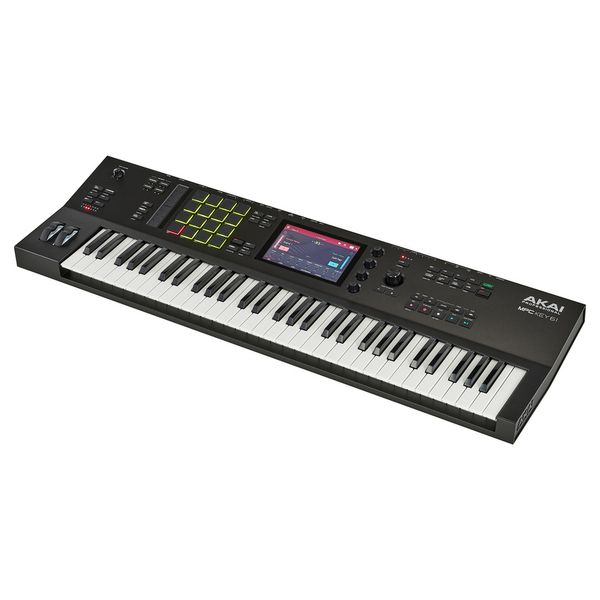
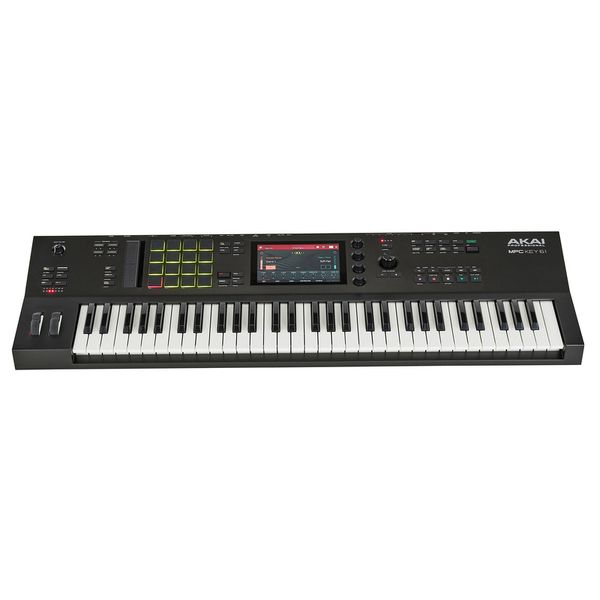

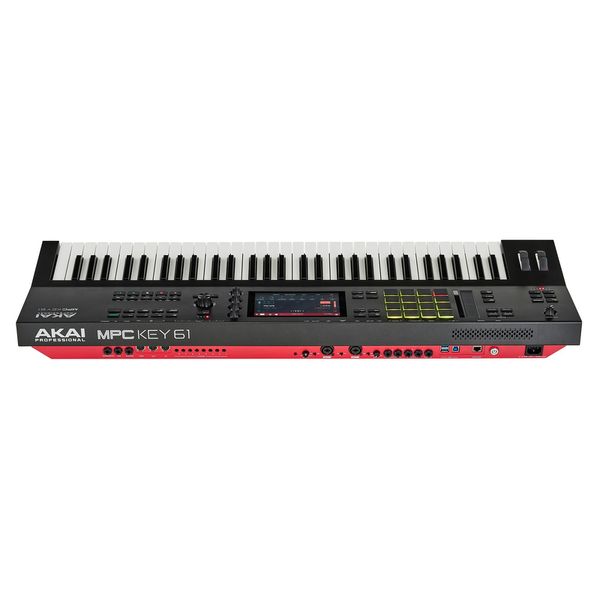
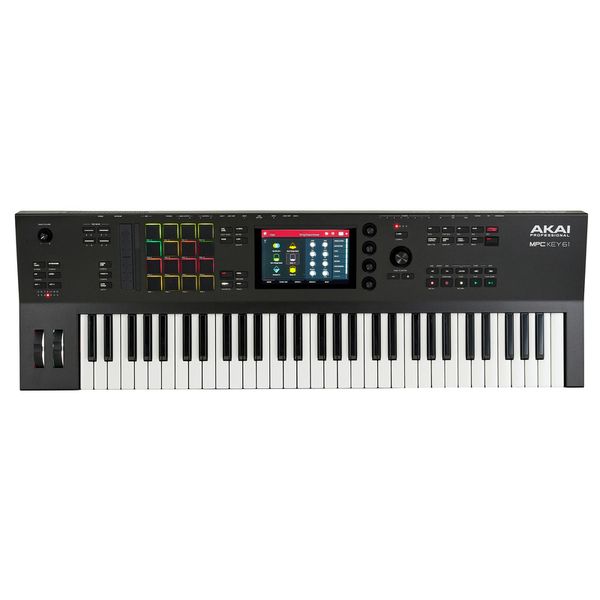
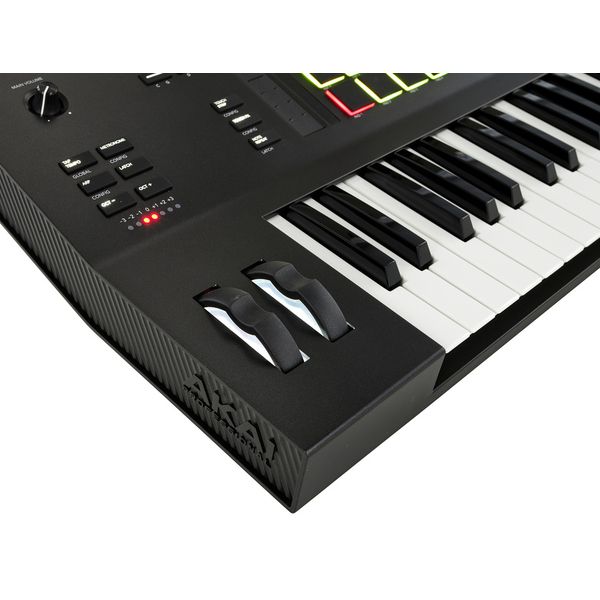
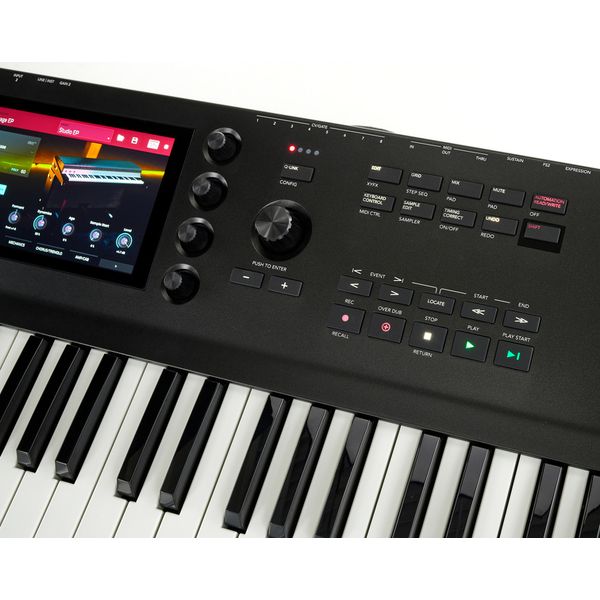
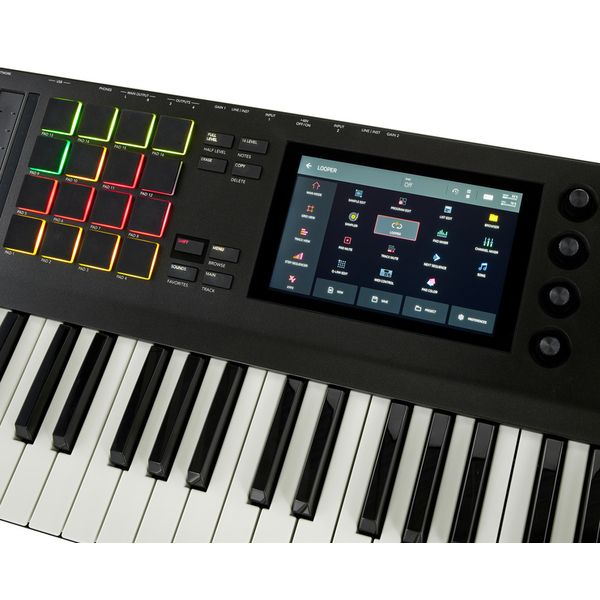
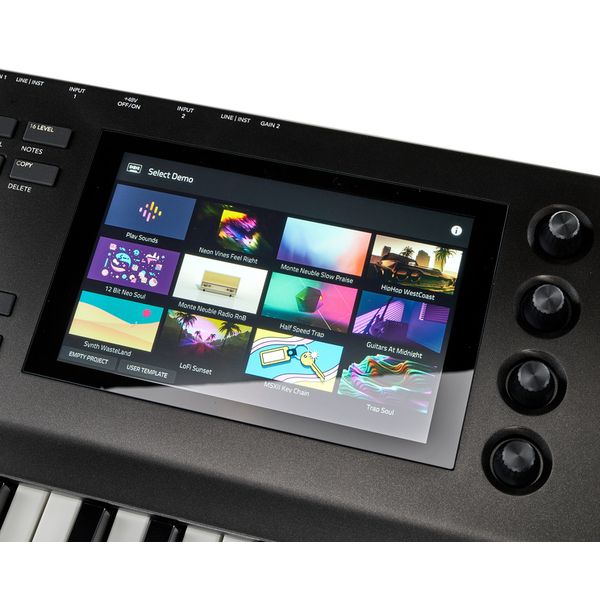

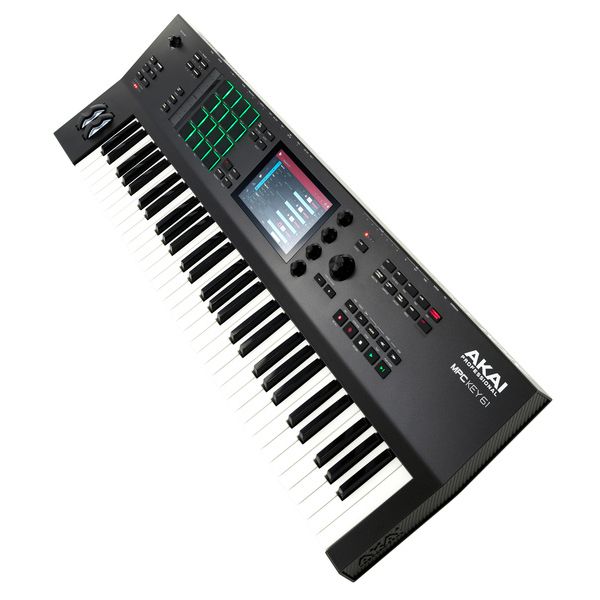
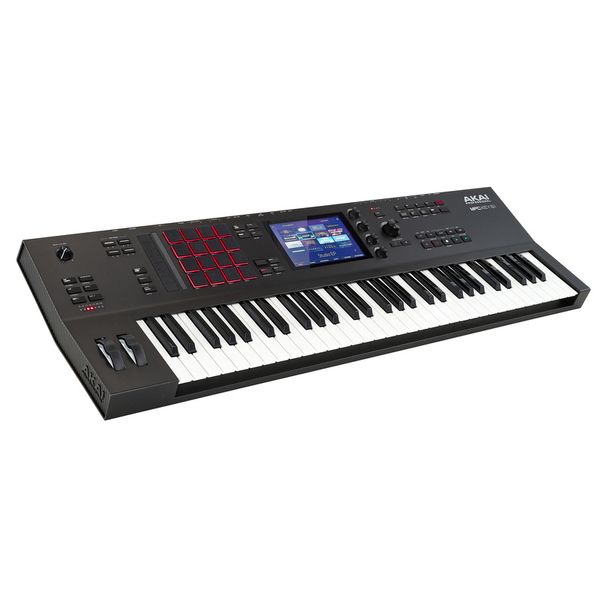
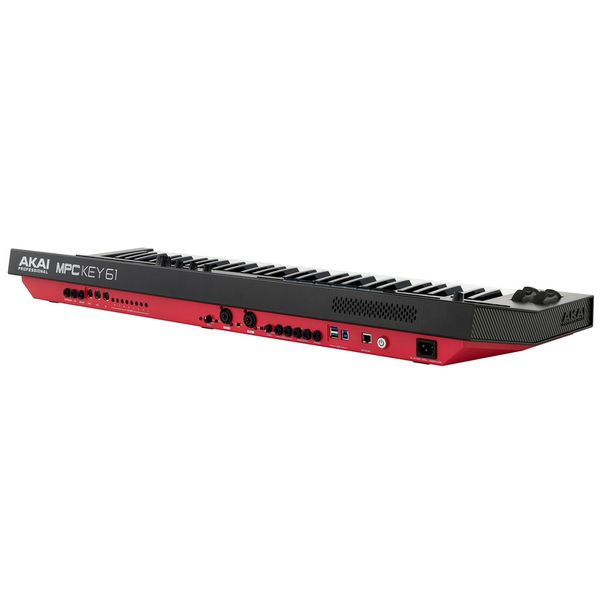
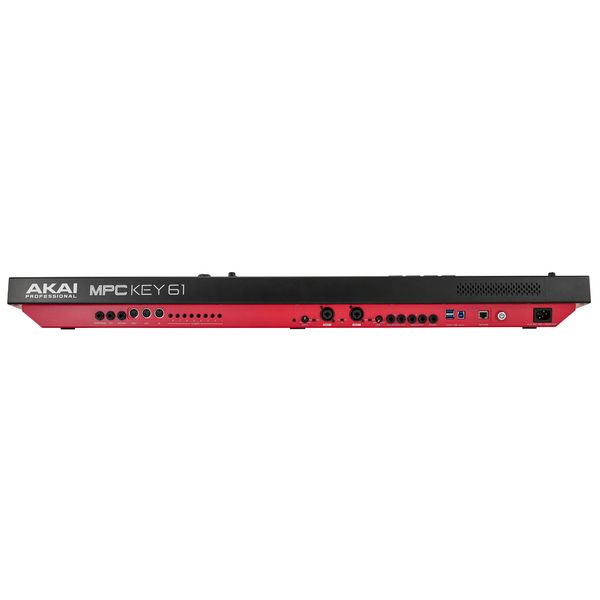















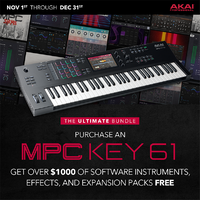

)

)
)
)
)
)



